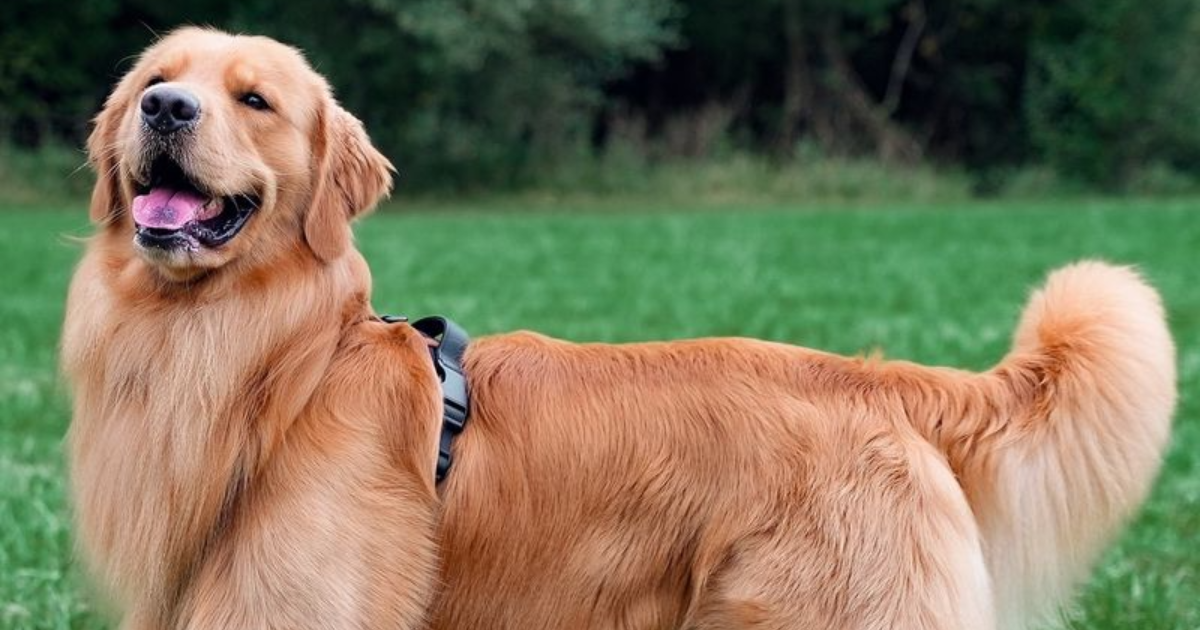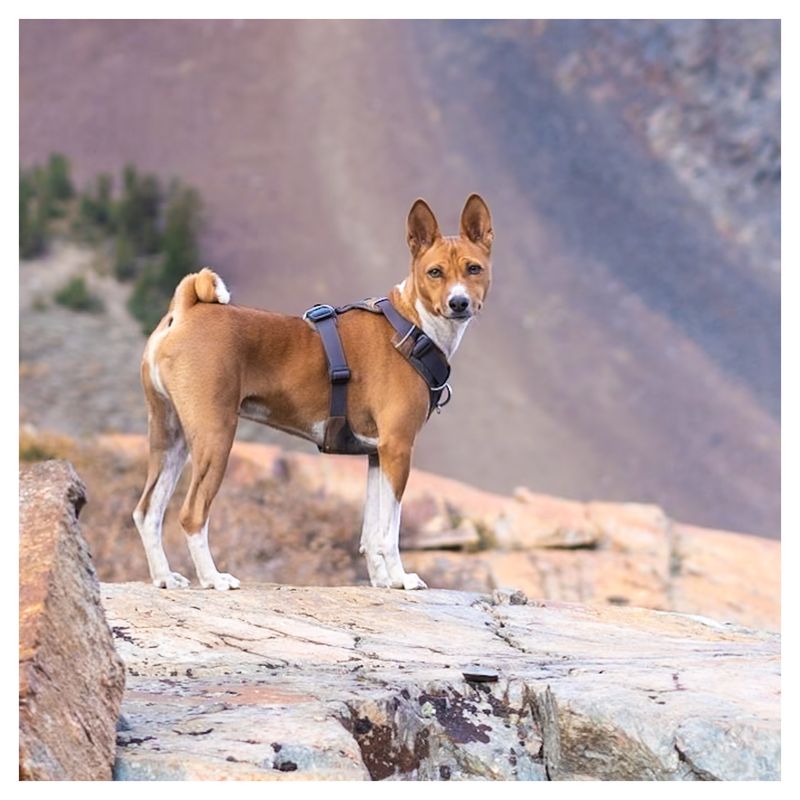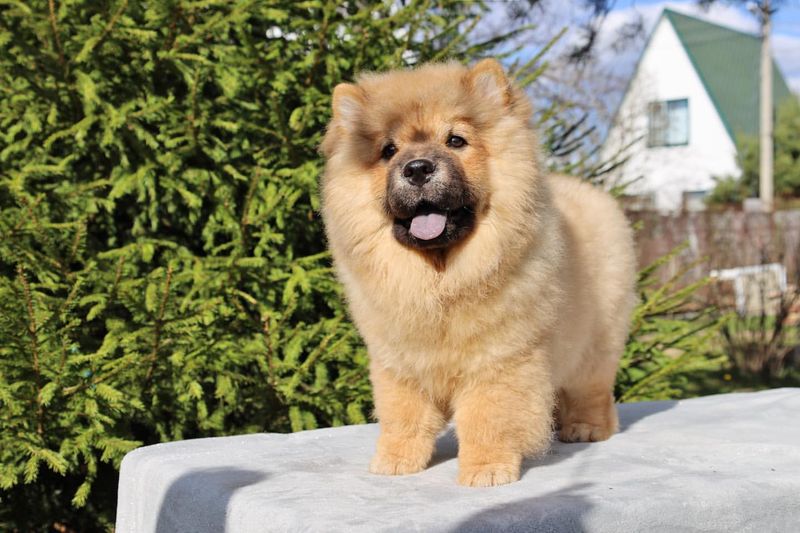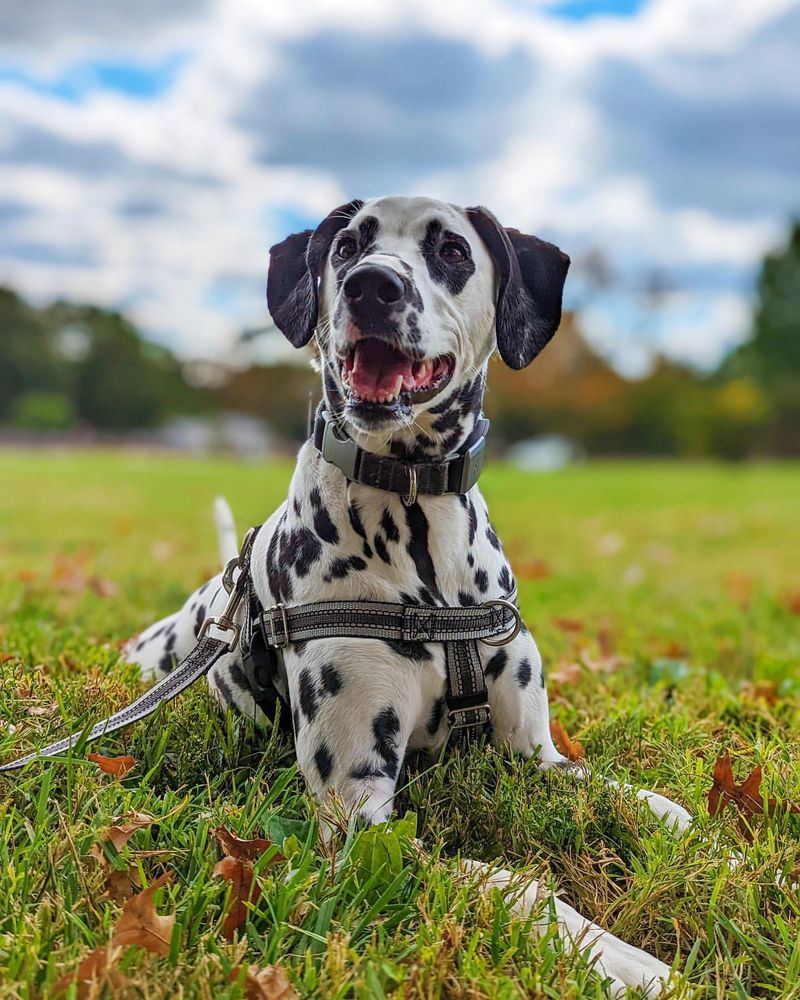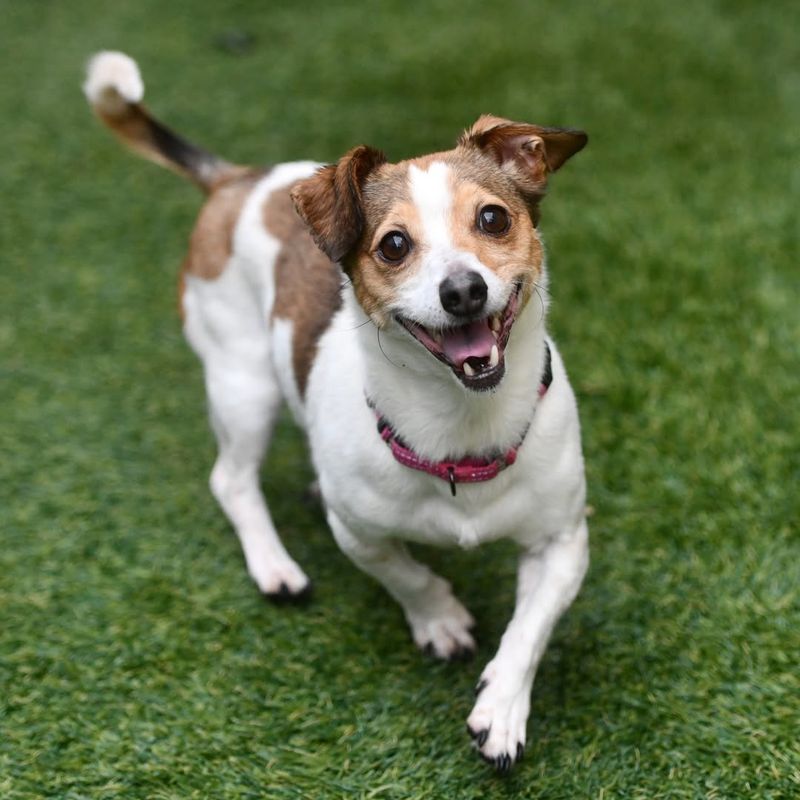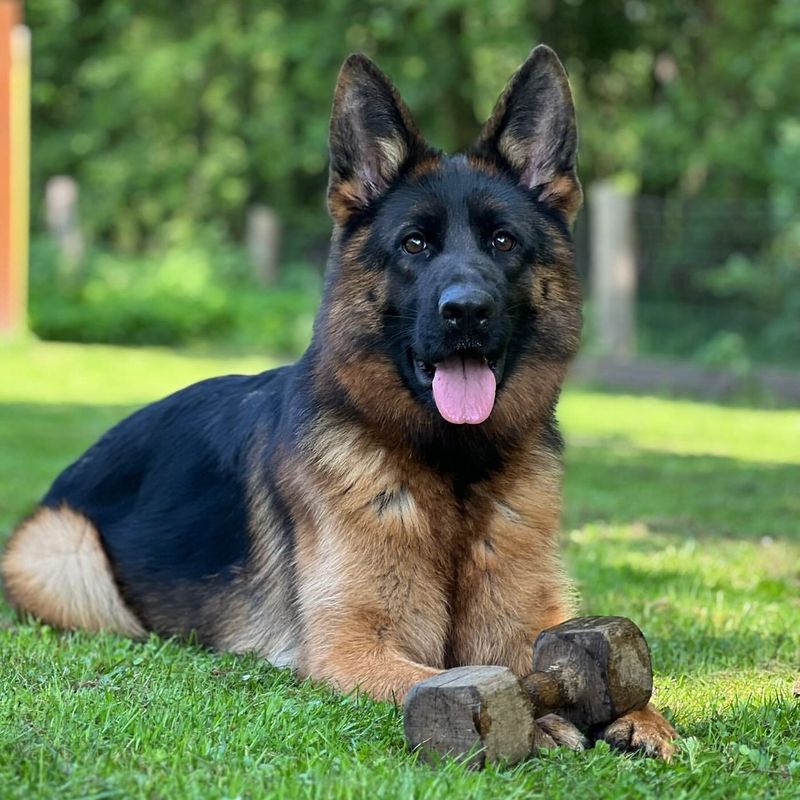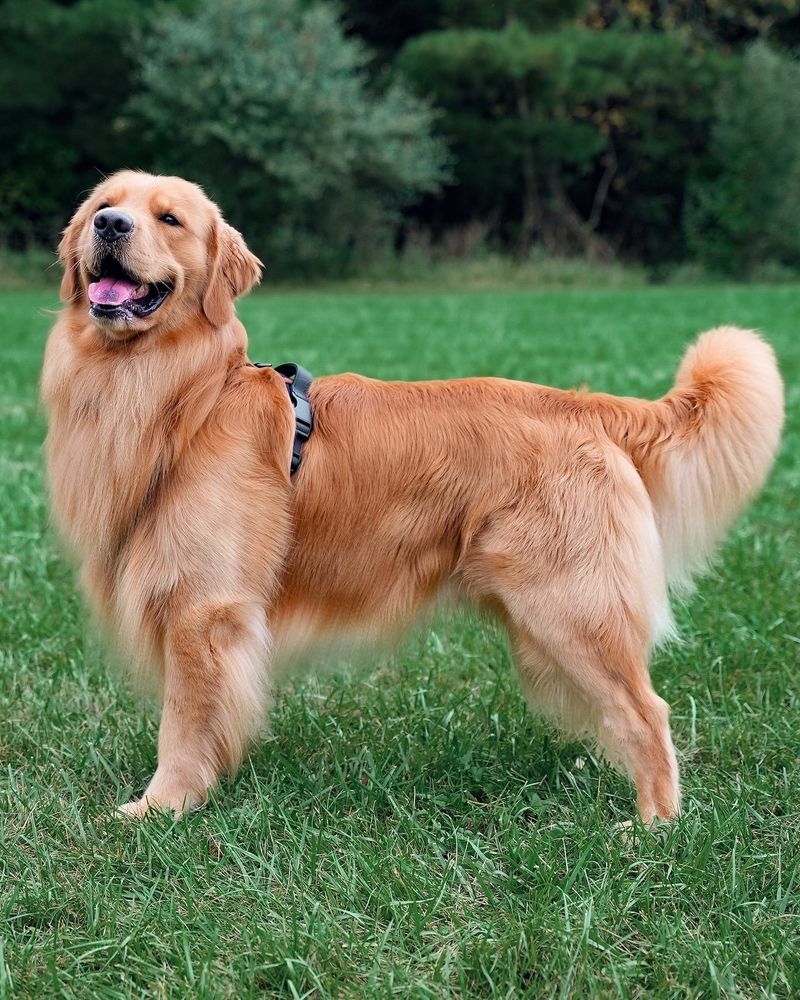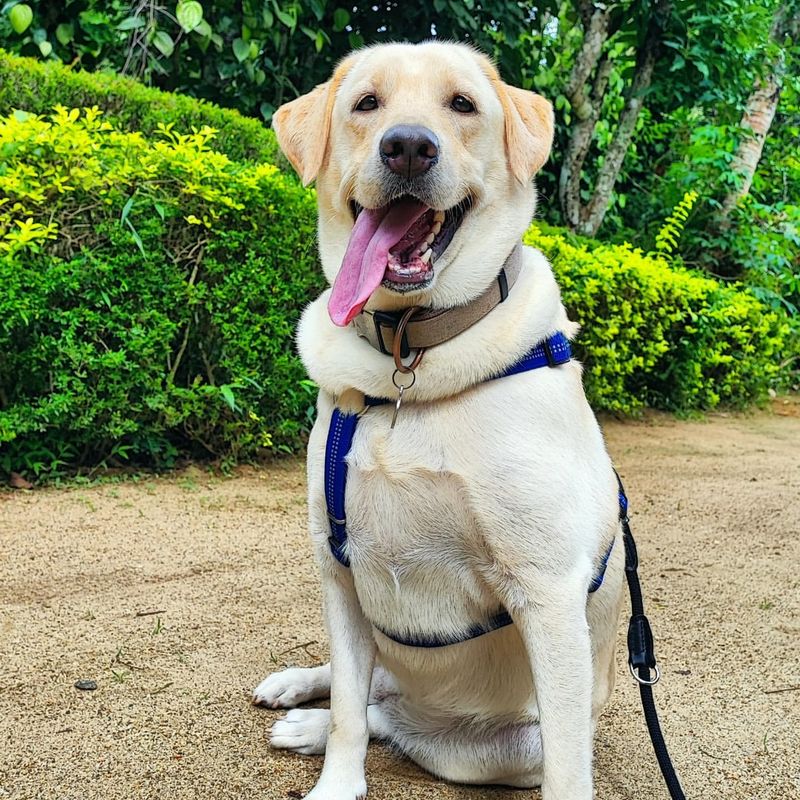📖 Table of Content:
Training your dog is one of the most rewarding parts of pet ownership—but let’s face it, some breeds make it feel like you’ve signed up for a crash course in patience!
Dogs come in all shapes, sizes, and temperaments, and their trainability often depends on their breed’s history, instincts, and personality quirks. While some breeds seem to pick up commands effortlessly, others may leave you wondering if they’re intentionally ignoring you.
Understanding which breeds are more challenging to train and why can save you a lot of frustration and help set realistic expectations. On the other hand, knowing which breeds are more naturally inclined to learn can make the training process smoother and even enjoyable.
Whether you’re a first-time dog owner or a seasoned trainer, this list will help you navigate the highs and lows of training by spotlighting five breeds that are famously stubborn and five that are famously obedient.
1. Afghan Hound
Known for their striking beauty and graceful demeanor, Afghan Hounds are as independent as they are elegant. These dogs were bred to hunt solo, which means they’re used to making their own decisions.
Their independence can often be mistaken for stubbornness, as they prefer to do things on their own terms. They are not overly food-motivated, which can make traditional reward-based training less effective.
Additionally, their sensitive nature means harsh training methods can backfire, making them even more unresponsive. While they’re not aggressive, their aloofness can make forming a strong training bond more difficult.
Owners need to get creative with motivation—whether it’s using high-value rewards or making training sessions fun and engaging.
2. Basenji
The “barkless dog” of Africa is as clever as they come—and just as mischievous. Basenjis are highly intelligent, but their independent streak can make training feel like a battle of wills.
These dogs have a knack for problem-solving, but often in ways that suit their agenda rather than yours. They can quickly lose interest in repetitive tasks, making training sessions feel like a test of your creativity.
Their unique vocalizations, often described as yodels, can add to their charm but also their challenge. Basenjis are also notorious escape artists, requiring constant vigilance and secure environments.
They’re more likely to invent their own rules than follow yours, so a firm yet positive approach with plenty of variety is essential to keep them engaged.
3. Chow Chow
With their lion-like manes and cat-like personalities, Chow Chows march to the beat of their own drum. These dignified dogs are incredibly loyal to their families but can be aloof and wary of strangers, making early socialization a must.
Their stubbornness is legendary; they often act as though they’re above obedience training and can come across as indifferent to commands. This breed thrives with a calm and assertive trainer who uses positive reinforcement to encourage cooperation.
Due to their independent nature, they’re better suited to experienced dog owners who understand how to build trust and mutual respect. Consistent training, coupled with patience and understanding, is key to unlocking the best version of this majestic breed.
4. Dalmatian
Famous for their movie-star looks, Dalmatians are energetic, intelligent, and full of personality—but also headstrong. These high-energy dogs were bred to work alongside horse-drawn carriages, and their stamina and drive remain evident today.
While their intelligence makes them capable of learning a variety of commands, their independent nature means they’re not always eager to comply. Their energy can lead to distractibility, especially in environments with lots of stimuli.
Providing plenty of exercise and mental stimulation is essential to keep them focused during training sessions. Positive reinforcement works best, as they respond poorly to harsh corrections. Be prepared to put in extra effort to channel their energy and intelligence in productive ways.
5. Jack Russell Terrier
Don’t let their small size fool you; Jack Russells are packed with personality and endless energy. These feisty terriers were originally bred for fox hunting, which explains their tenacity and strong prey drive.
Their intelligence is matched only by their stubbornness, as they’re quick to figure out how to get what they want—sometimes at the expense of your rules. They’re notorious for testing boundaries and can easily become bored with repetitive training exercises.
To succeed with a Jack Russell, you’ll need to keep training sessions short, fun, and varied. Their boundless energy also means they require plenty of physical and mental stimulation outside of training.
6. Border Collie
Widely regarded as the smartest dog breed, Border Collies are the gold standard for trainability. These dogs were bred for herding sheep and have a natural instinct to work closely with humans, making them exceptionally attuned to commands and cues.
Their incredible work ethic and eagerness to please make them a dream for obedience training, agility, and even advanced tricks like learning complex sequences or problem-solving tasks.
However, their intelligence comes with a caveat: they need constant mental stimulation. Without it, they can become bored and may resort to destructive behaviors to entertain themselves.
7. German Shepherd
German Shepherds are loyal, intelligent, and highly versatile dogs that excel in a variety of roles, from police work to service animal duties to loyal family companions. Their strong work ethic and natural protective instincts make them highly trainable and responsive to commands.
These dogs are particularly suited to structured training programs, where they can demonstrate their ability to learn and execute commands quickly. German Shepherds also form deep bonds with their owners, often showing unwavering loyalty and a desire to please.
Their versatility extends to learning complex tasks, such as scent detection, search and rescue, and even advanced obedience competitions.
8. Poodle
Poodles are more than just pretty faces; they’re also one of the most intelligent and versatile dog breeds. Available in standard, miniature, and toy sizes, Poodles adapt well to a wide range of activities and environments.
Their intelligence and eagerness to learn make them a natural fit for obedience training, and they often excel in canine sports like agility, rally, and even water retrieval tasks. They’re also quick to pick up tricks and enjoy showing off their skills to earn praise and treats.
Their desire to please their owners makes them cooperative and responsive during training sessions. Additionally, Poodles are highly intuitive, often sensing and responding to their owners’ emotions, which makes them excellent therapy or emotional support animals.
9. Golden Retriever
Golden Retrievers are the quintessential family dog for good reason. Their friendly, eager-to-please nature and high intelligence make them one of the easiest breeds to train.
These dogs thrive on positive reinforcement and will quickly pick up basic commands, advanced tricks, and even specialized tasks like assisting people with disabilities or working as therapy dogs. Their gentle temperament and sociable demeanor make them a favorite choice for families with children or other pets.
Golden Retrievers are incredibly patient, which makes them ideal for training programs that require repetition or more complex instructions. They also have a playful side, enjoying games like fetch, which can double as a way to reinforce training.
10. Labrador Retriever
The Labrador Retriever’s cheerful demeanor and adaptability make them a top choice for first-time dog owners and experienced trainers alike. Known for their boundless enthusiasm and friendly nature, Labs are quick learners with a strong desire to please their owners.
They excel in obedience training and can master everything from basic commands to advanced tasks like retrieving objects or working as guide dogs. Their versatility makes them a popular choice for service roles, therapy work, and search-and-rescue operations.
Labs are also highly food-motivated, which can be a significant advantage during training sessions. This breed thrives on human interaction and benefits from consistent training and plenty of physical activity.
